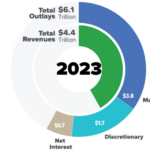Can Europe overcome its banking hurdles to foster economic growth?
- UniCredit’s attempt to acquire Commerzbank highlights challenges in European banking consolidation.
- Germany’s government opposes the merger, reflecting a risk-averse culture and political concerns.
- The deal is seen as a test of Europe’s ability to unify its banking sector and enhance economic growth.
- Supporters argue that stronger banks are essential for Europe’s economic vitality.
- Germany’s economy has struggled to grow post-pandemic, raising urgency for banking reforms.
- Concerns about national pride and financial responsibility complicate merger discussions.
- The lack of a regionwide deposit-insurance system hinders the creation of a banking union.
- Commerzbank has a history of financial struggles, including a government bailout in 2008.
UniCredit’s CEO Andrea Orcel has made headlines with a surprising bid to merge his Italian bank with Germany’s Commerzbank, a move that many in Europe have long desired. This merger is seen as a potential catalyst for economic growth across the continent, yet it has sparked significant backlash from Germany. The German government, reflecting its cautious political climate, has labeled UniCredit’s approach as an unfriendly attack, emphasizing a belief that banks should primarily serve the economy rather than focus on shareholder profits. nnGermany’s economy, the largest in Europe, has struggled to regain momentum since the pandemic, making the need for stronger financial institutions more pressing. Orcel has argued that this merger could create a robust bank capable of supporting economic growth in the region. However, Germany’s reluctance to embrace the deal underscores a broader hesitation to adopt a more American-style banking model, where large financial institutions operate with fewer restrictions. nnDespite the European Central Bank’s support for bank mergers, Germany’s political landscape complicates the situation. Chancellor Olaf Scholz’s low approval ratings and the looming threat of recession add pressure to the decision-making process. Critics of the merger fear that it could lead to a concentration of power that might disadvantage smaller countries during economic downturns. nnThe historical context is also significant; Commerzbank has faced financial difficulties, including a government bailout in 2008, and has struggled to maintain profitability. Supporters of the merger argue that UniCredit is in a much stronger position and could provide the necessary stability for Commerzbank. nnAs discussions continue, the future of this potential merger remains uncertain. If it fails, analysts warn that it could signal a stagnation in Europe’s efforts to create a unified banking system, a goal that has been elusive for decades. The outcome of this deal could have lasting implications for the European financial landscape and its ability to compete globally.·
Factuality Level: 6
Factuality Justification: The article provides a detailed analysis of the potential merger between UniCredit and Commerzbank, including various perspectives and concerns from different stakeholders. However, it contains some bias and subjective interpretations, particularly regarding national attitudes towards banking and financial responsibility. Additionally, there are instances of redundancy in presenting similar arguments multiple times, which detracts from the overall clarity and objectivity of the piece.·
Noise Level: 7
Noise Justification: The article provides a detailed analysis of the challenges facing a potential merger between UniCredit and Commerzbank, highlighting the political, cultural, and economic factors at play. It includes quotes from relevant stakeholders and experts, which adds depth and supports its claims. However, while it raises important points, it could benefit from more actionable insights or solutions regarding the future of European banking.·
Public Companies: UniCredit (UCG), Commerzbank (CBK), Lufthansa (null), BBVA (null)
Private Companies: HypoVereinsbank,Sabadell
Key People: Andrea Orcel (CEO of UniCredit), Olaf Scholz (Chancellor of Germany), Bettina Orlopp (CEO of Commerzbank), Filippo Alloatti (Analyst at Federated Hermes), Emilios Avgouleas (Professor of Banking at the University of Edinburgh), Nicolas Véron (Senior Fellow at the Peterson Institute for International Economics), Karel Lannoo (CEO of the Center for European Policy Studies), Florian Heider (Scientific Director at SAFE)
Financial Relevance: Yes
Financial Markets Impacted: The potential merger between UniCredit and Commerzbank could significantly impact the European banking sector and financial markets, particularly in Germany and Italy.
Financial Rating Justification: The article discusses a proposed merger between two major banks, which is a key financial topic that could influence market dynamics, regulatory policies, and economic growth in Europe.·
Presence Of Extreme Event: No
Nature Of Extreme Event: No
Impact Rating Of The Extreme Event: No
Extreme Rating Justification: The article discusses a potential merger between UniCredit and Commerzbank, which is a significant financial topic, but it does not describe an extreme event that occurred in the last 48 hours.·
Move Size: No market move size mentioned.
Sector: All
Direction: Down
Magnitude: Large
Affected Instruments: Stocks
 www.wsj.com
www.wsj.com 




